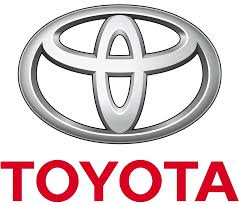
Toyota Adds Hilux to its Vehicle Assembly Portofolio in Kenya.
Toyota, a multinational automobile maker, has announced that it will infuse Sh100 million into local production of the brand’s popular Hilux model in Kenya. Although the company first announced its intention to start assembling Hilux in Kenya in 2016, production is expected to commence this October.
The Japanese car manufacturer gained market dominance in Kenya when it launched it’s truck and bus assembly plant and showroom in 2011. Presently, the plant assembles Land Cruiser pick-ups, Hino trucks, and Yamaha Motorcycles.
Commenting on the new addition, Toyota Managing Director Arvin Reel said, “We took a decision to work with Hilux because this is one of our highest selling models … This will be the first phase since we are looking to assemble other models in the near future. For now, we will be concentrating on the Hilux so that we make it a case study for the passenger vehicles.”
With the first batch of locally assembled Hilux expected to be out by the end of October, equipment is set to come in between now and August. The company has also trained its staff by inviting partners from Toyota Motor Corporation (TMC).
Toyota is expecting to produce more than 500 Hilux model cars in the first year of production. Unfortunately, the local auto industry currently produces about 6000 vehicles annually whereas, it has the capacity to manufacture 34,000 vehicles.
Notably, Toyota’s Kenya assembling plant is not the only assembling plant the Japanese company has in Africa. Toyota Nigeria opened its assembly plant with a capacity of 30,000 units in annual production in 2017. The plant assembles minibuses, pickups and other light commercial vehicles. Toyota also has a factory in South Africa which has the capacity to build 84,000 Corolla cars.
In another development, Toyota Kenya announced a partnership with Prime Bank to launch the New Drive Loan Facility. This partnership will enable insurance brokers to access loans while purchasing selected vehicles from Toyota with a repayment period of 36 months. These vehicles include Toyota Rush, RAV4, Fortuner and the Suzuki Ertiga. This collaboration is intended to help grow the number of Kenyans buying brand new Toyota vehicles and also expand the asset finance portfolio of Prime Bank.
However, the company is affected by certain issues facing the vehicle industry in Kenya including a lack of dedicated legal and institutional regulatory framework, importation of parts by franchise holders, and an inflow of used fully built units. Thankfully, the government is in the process of creating an automobile policy that will tackle these challenges.

